Speeches Shim
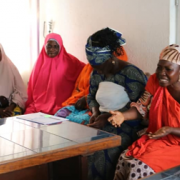
Working at the Niger State Water Board has taken on a whole new meaning for Aishatu Mohammed, Sadiya Suleiman, Salamatu Ibrahim and Zainab Yunusa. For this foursome, it is no longer business as usual, but a higher call to duty and excellence. They have each been appointed to one of four out of the Board’s five newly appointed unit heads. As a participating state in the USAID-supported Effective Water and Sanitation (E-WASH) activity, Niger state recently conducted baseline assessments that showed the Board had staffing level of 571 men and 92 women, a ratio of nine males to every female staff member. Of the 12-member management team, only two were women.
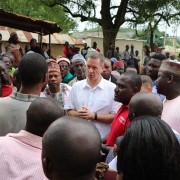
Following a recent visit to Nigeria, USAID Administrator Mark Green said he has learned the critical role interfaith leaders play in mitigating violence in their communities, and the fact that these conflicts are often caused by disputes over access and distribution of resources, which are exacerbated by rapid population growth, urbanization, and desertification, among other factors. While in Abuja, Green met with religious leaders, local officials, clerics, civil society activists and beneficiaries to get a first-hand look at USAID’s peacebuilding efforts and the role civil society plays in mitigating rural violence.
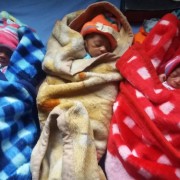
For Cletus, a security guard from the village of Mkpani in Cross River state, joy that his wife Antonia was pregnant for the fourth time, was tempered with fear after her first antenatal visit: she was expecting triplets. Eight months later, Antonia gave birth safely at the village Primary Health Center under the care of Sister Clementina, a village midwife. As is often the case with triplets, the two girls and a boy were all healthy but underweight, the largest weighing not quite four pounds and the smallest a little more than two.
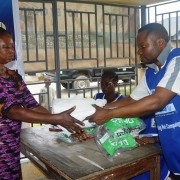
At a ceremony held June 6, the United States handed over 2.3 million long lasting insecticide treated mosquito nets in Cross River state as part of its comprehensive effort to control malaria across Nigeria. The donation was made possible through the U.S. President’s Malaria Initiative (PMI) and jointly implemented by the U.S. Agency for International Development (USAID) and the Centers for Disease Control and Prevention (CDC).
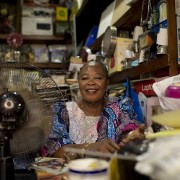
Power Africa, the U.S. government’s initiative to help improve access to electricity across the continent, is helping Nigeria to access innovative private sector financing that will provide clean, safe, affordable and reliable electricity to market places, shopping centers, and industrial facilities across Nigeria.

Comment
Make a general inquiry or suggest an improvement.